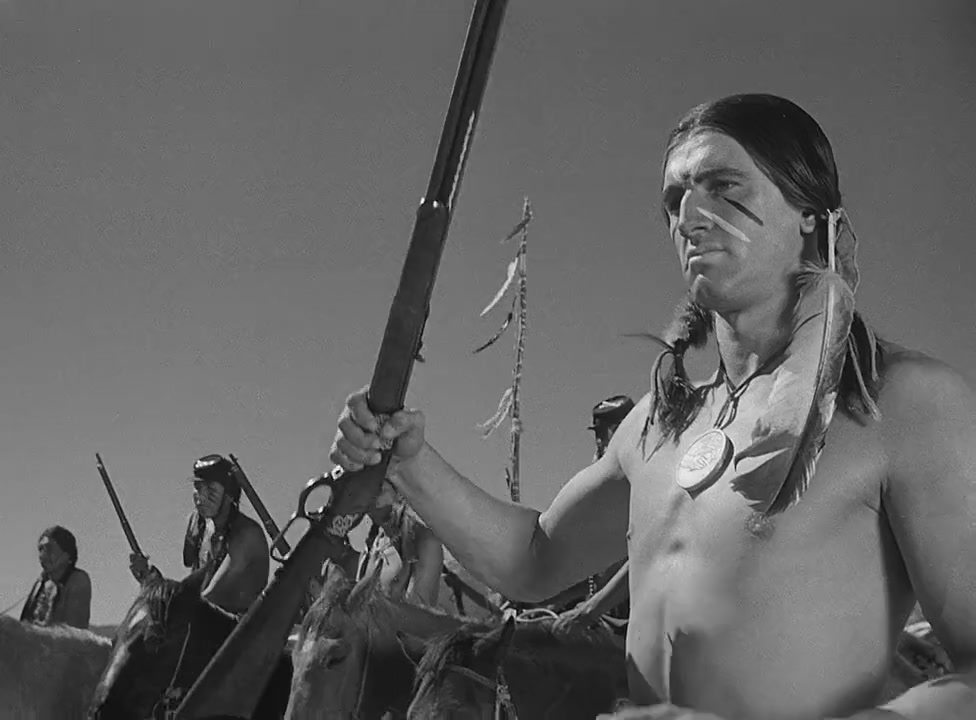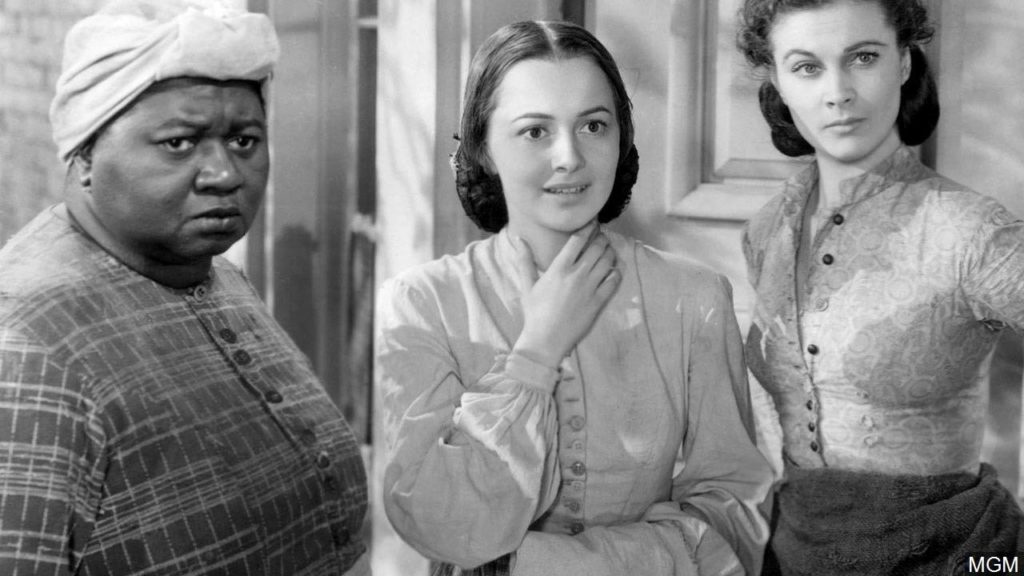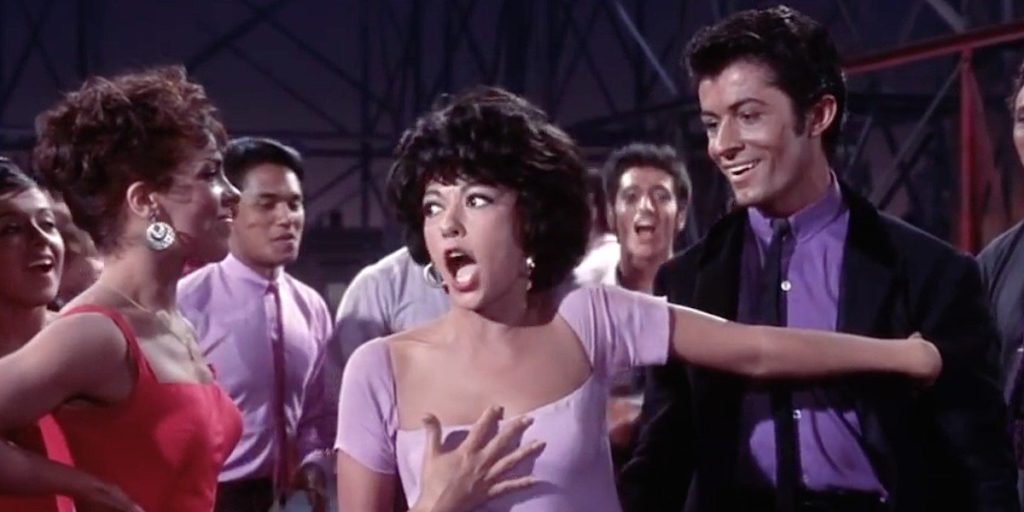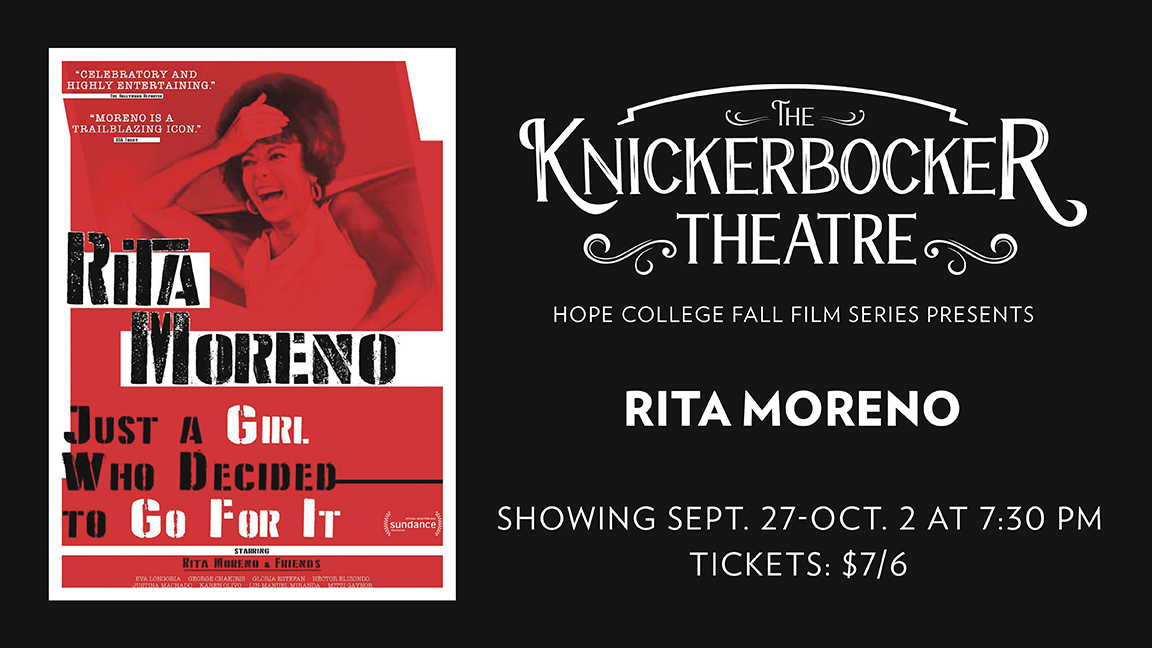I’m a fan of classic films. The writing and acting, the willingness to let a plot slowly unfold, and the patience to let characters develop separate those “old” films from much of what we see today. The independent and international films we show in our film series also usually value these traits. We live in a fast-paced world and Hollywood makes fast-paced films. That does not make them bad, but different from the older films or ones we show in our series.

But classic films also have a serious problem. Racism. Entire films were made with white casts, even white extras, so you think there are only white-skinned people in the world. Or, people of color were given stereotypic roles: the black maid, the gangster Latino, and the sly Asian person. Indigiousness people were played by other darker-skinned people or, if that didn’t work, they would just slap dark makeup on a white face.
Plus, many films, especially musicals are marred by the appearance of “blackface,” a vaudeville tradition of a white actor using exaggerated black makeup and gestures to create a comic character. TCM (Turner Classic Movies) has openly wrestled with this and created a great 12-minute video you can watch online entitled Blackface and Hollywood: A Short History.

Then there was the Gone with the Wind controversy in 2020 as filmmaker John Ridley called on HBO to remove the classic film from its rotation. “It is a film that, when it is not ignoring the horrors of slavery, pauses only to perpetuate some of the most painful stereotypes of people of color,” Ridley wrote. HBO pulled the film.
Ridley did not want the film to disappear but wanted it to be shown with some context. Perhaps paired with films that show the true nature of slavery (if a film can capture such horror) or be shown with people discussing the film before it is shown.
What Ridley must recognize is that while Gone with the Wind is an easy target, the list of films that perpetuate hateful stereotypes and shock us with their easy-going racism is large. Very large. Yet the enormity of the task of addressing racism in film cannot push us away from the task.
“It’s difficult to face things that are ugly in our history,” says professor and TCM host Jacqueline Stewart, “but denial is worse.”
When we show classic films at the Knickerbocker we’ve subtly, never overtly, addressed these issues. We’ve avoided films with blackface and tried to eliminate those with strong stereotypes. We’ve balanced the all-white genre with black musicals such as Cabin the Sky or featured films that include a great African-American actor like Sidney Poitier. (Including the film, In the Heat of the Night, which is one of the best explorations of racism I’ve seen on the screen). But we clearly have more work to do in order to address this issue in our film selections.
“It’s difficult to face things that are ugly in our history. But denial is worse.”
Film professor and TCM host Jacqueline Stewart
And, as if addressing racism is not enough, there are all the issues you find that were treated one way in the 1940s but now, 80 years later, we find appalling. The disregard for people in a wheelchair, the “traditional woman” responsibilities speeches given to young girls, and the misunderstanding of mental illness.
There are no simple ways to address all of this and no one film can do it. The TCM documentary noted above gives you a quick overview of one racist element of Hollywood, but it is the start of a conversation, not the end.

We open our film series this fall with a documentary about a woman who faced racism throughout her acting career. There are few artists as successful in so many areas as Rita Moreno, but her success came despite the racism of her profession and the United States culture. She stole the show in many films we consider classics, and this documentary, Rita Moreno: Just a Girl Who Decided to Go For It adds to this conversation about film and racism. We get to hear from someone who has experienced racism for decades and knows the damage it inflicts. But she is also someone who has fought that racism to become a legend, offering us a testament of hope. We can learn by listening, by talking, by engaging the challenge of racism. Films are one way we can begin and continue those important conversations.
See Rita Moreno: Just a Girl Who Decided to Go For It from Sept. 27-Oct. 2 at the Knickerbocker Theatre at 7:30 p.m. Read the press release to find out about the other great films in the series.



Thank you, Derek!
So very thoughtfully written: precise, straightforward, clear in its complexity, never defensive or apologetic, and the insight about how limiting it is to call out Gone with the Wind
alerts us to how easy it is to appear ethically concerned. And a model of fine and important writing.
Thank you so very much
Jack